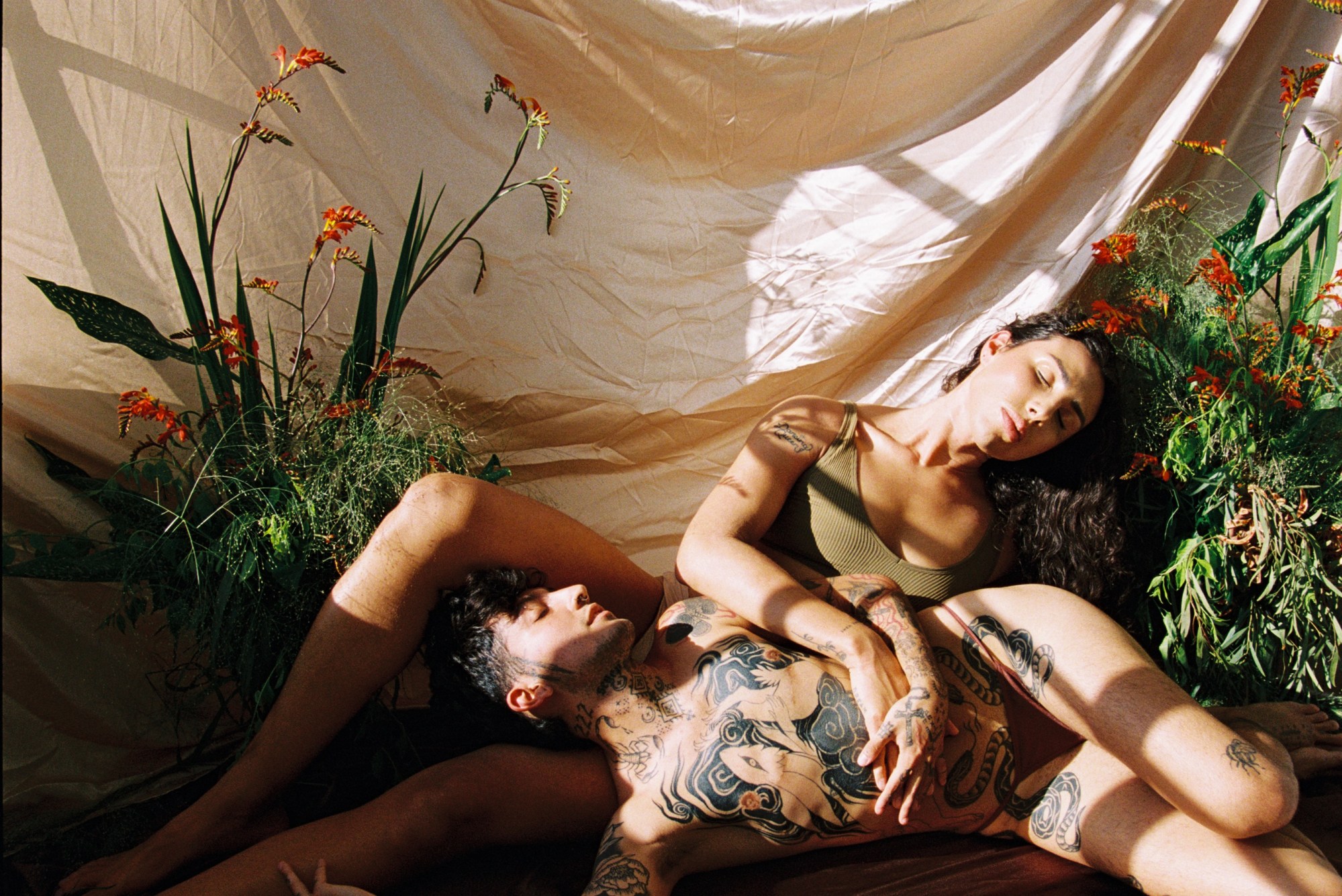Coyote Park knows shared experiences can often feel like a saving grace. Their exhibition, on view at the Leslie-Lohman Museum of Art through July 16, examines intimacy, charged affection and loving companionship. I Love You Like Mirrors Do is part of the New York venue’s ongoing Interventions series, for which it invites LGBTQIA+ artists to explore their collection established by Charles Leslie and Fritz Lohman, who were interested in homoerotic art and the work left behind by victims of AIDS.
The curator of I Love You Like Mirrors Do, Stamatina Gregory, wanted to solve the riddle of: “how do I figure out how to engage this collection of over 25,000 objects?” The solution was to invite artists to dive into the archive and “present their findings in a creative format of their choosing.” Coyote’s process of poring over the collection was guided by the theme of pairs. “Growing up not only as a trans person, but also on an island, I was always trying to find ways to see or understand myself,” Coyote says of their Hawaiian roots. They began their photography practice nearly a decade ago, doing shoots for friends who designed latexwear and snapping Oahu nightlife portraits, before moving to New York for their studies. For them, photography itself as a medium mimics a form of cocooning: “whatever is going on outside the frame, you can discard,” Stamatina notes.
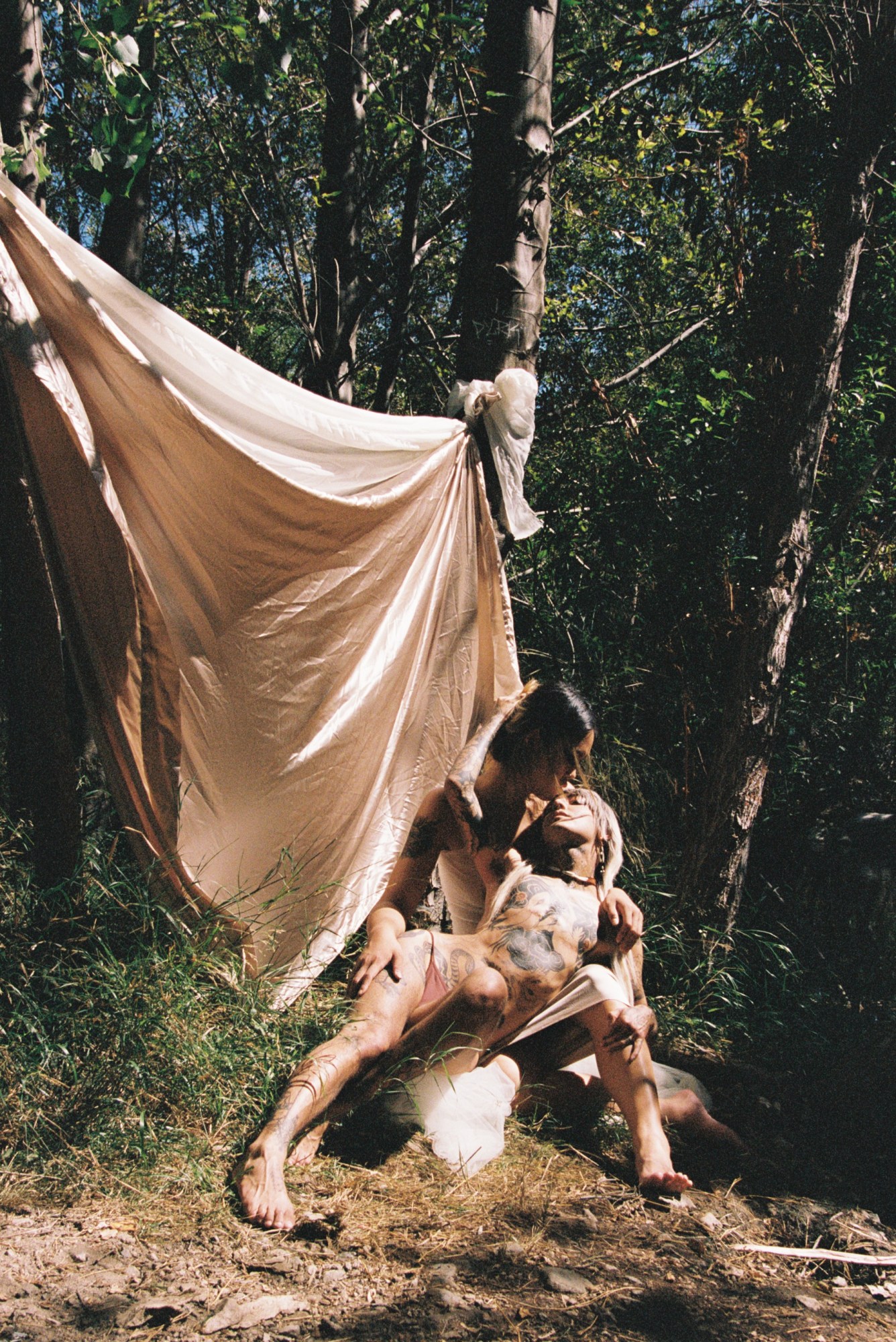
The Leslie-Lohman collection works heavily inspired — and are in fact loosely replicated in — Park’s own photographs, which spotlight the artist’s constellation of polyamorous relationships. Although Coyote’s work was created conversationally in response to existing pieces from the collection, the layout is expressly not one-to-one: “We really wanted to avoid this idea of, like, you know, here’s the work — and here’s the work it’s based on,” Stamatina says. In the entryway, two Asian figures by Li Ming Shun (“Untitled (The Rose)”) inspired Coyote’s image inside the gallery space (“The Chrysanthemum”), and together, the two works form a kind of call-and-response. Similarly, the triptych “Being” (2007) by South African photographer Zanele Muholi — a lesbian sexual health PSA in which three couples lie down embracing — is suggestively echoed by three inkjet images by Coyote hung within the same sight line. Another photo by Coyote, taken in a cove in Tahoe after Burning Man, is modelled on Marcelina Martin’s Lilies, a pastoral image of two women splayed along a water’s edge, which “comes out of this mystical essentialist 70s feminism… living-on-a-commune lesbian sex as a healing practice,” Stamatina says, and is “totally unironic”.
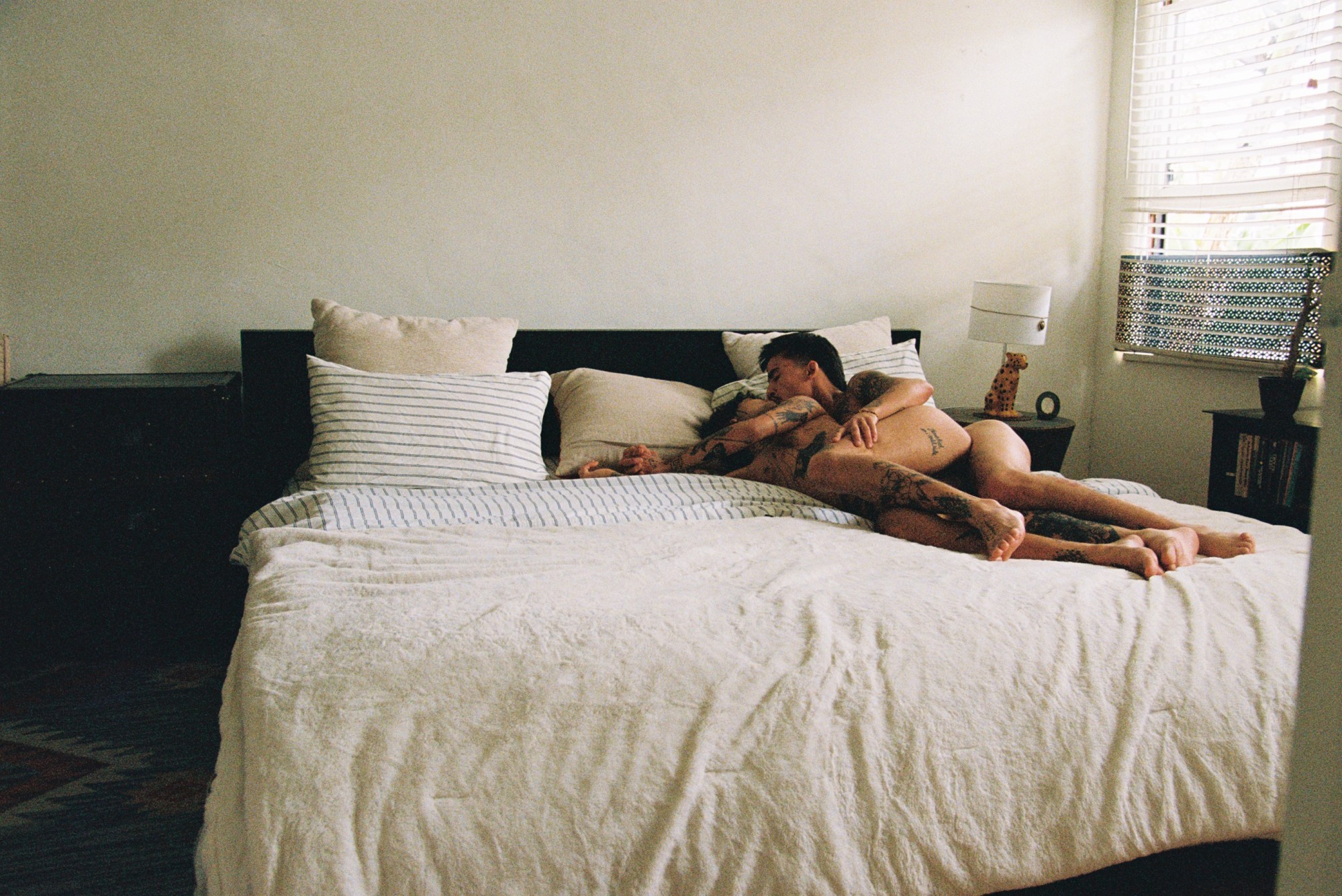
Classically, portraiture has been a dichotomy between the maker and the sitter, “which is almost counter to what these are,” Stamatina notes, given the participatory spirit of maker and sitter jointly representing coupledom. “It’s been such a necessity for me to photograph joy and love and pleasure and rest and peace because… for so many people in trans and queer communities, we’re so used to being in a culture that thrives off of showing our pain,” Coyote says. “I wanted to create something that reflected beauty.”
Having said that, they’re not afraid of confronting the hurt either — it’s something they will express in their forthcoming show, My Own Private Rodeo at One Gallery in West Hollywood. “I’ve felt hunted in this society, going down the street dealing with violence,” Coyote says. Moreover, as a Two Spirit person, they have often been the only one in the room representing Indigeneity. My Own Private Rodeo is “the most I’ve ever focused on the tougher feelings, like the grief work and really diving into that place of isolation,” they explain. “What does it mean to transmute shame into pride? I’ve been able to turn it into a space that’s of redemption or reclamation.”
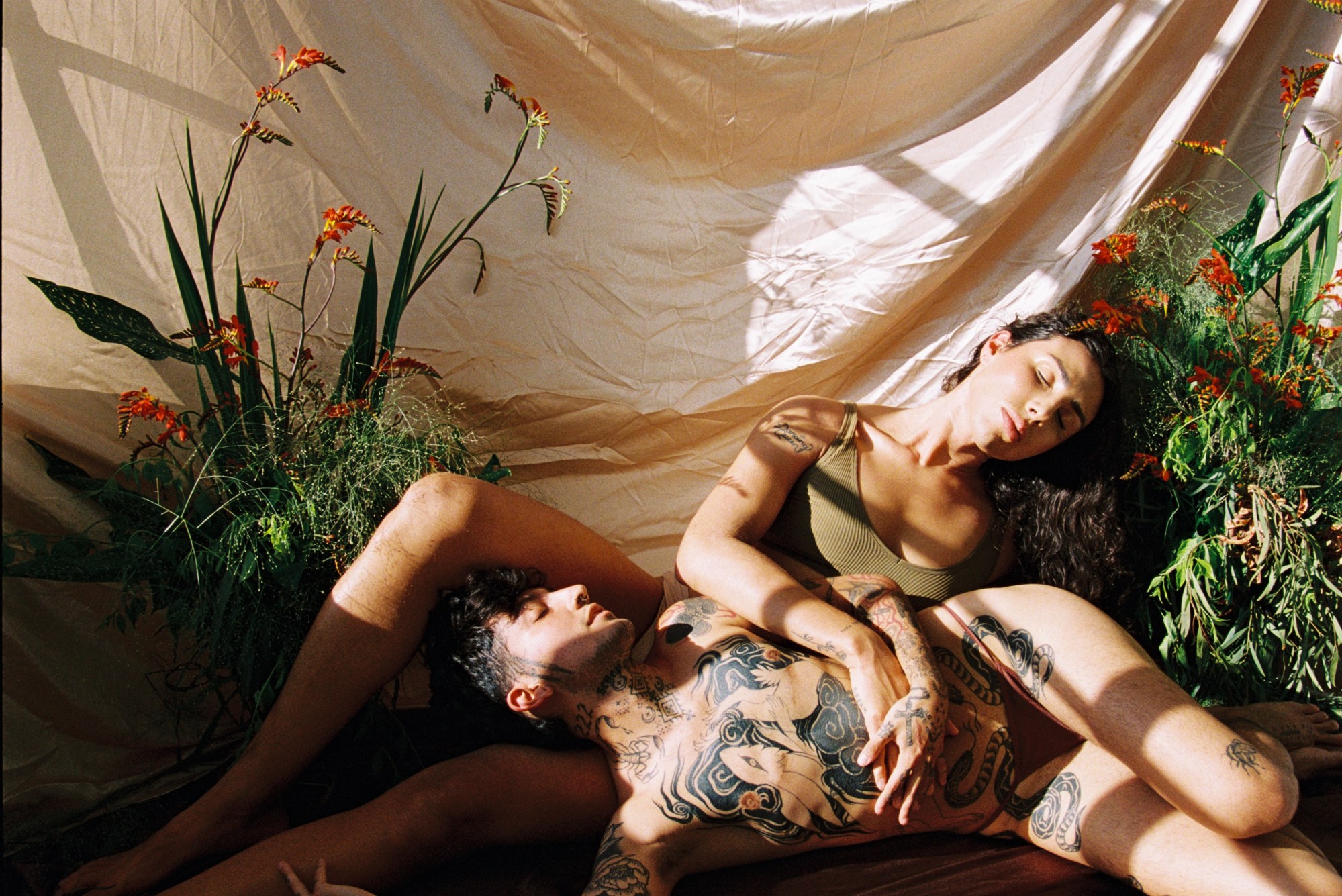
That’s why it’s been important for Coyote’s creative practice to fold right into experiential comforts. The time spent photographing rarely lasts longer than a half hour and is nestled within longer stretches of time spent together with their subjects. “I don’t really operate it as being a shoot,” they explain, citing moments of scampering amidst Oahu’s lush greenery or shoving furniture aside in an Airbnb to throw down a silk sheet as a makeshift studio. “I don’t want the process to feel extractive,” they say. “After the images, we go to the beach or have brunch.”
I Love You Like Mirrors Do is on view at Leslie Lohman Museum through 16 July 2023.
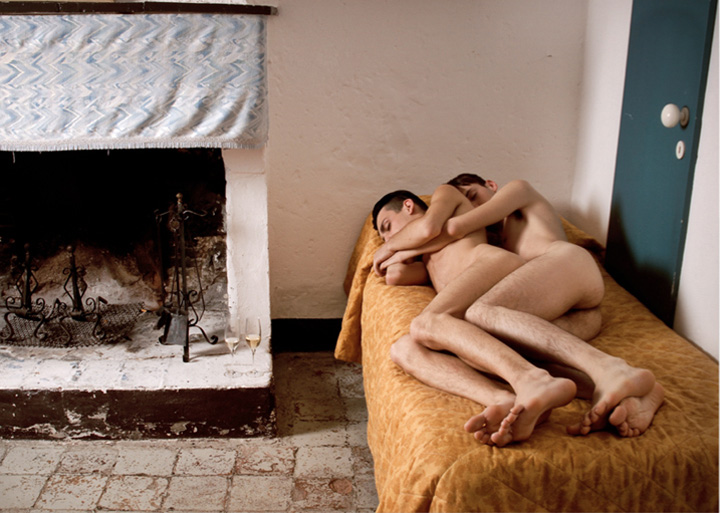
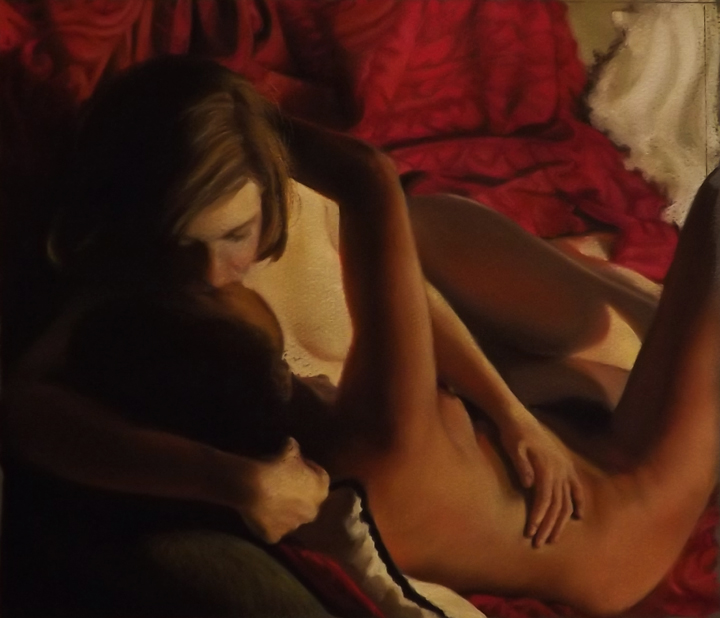
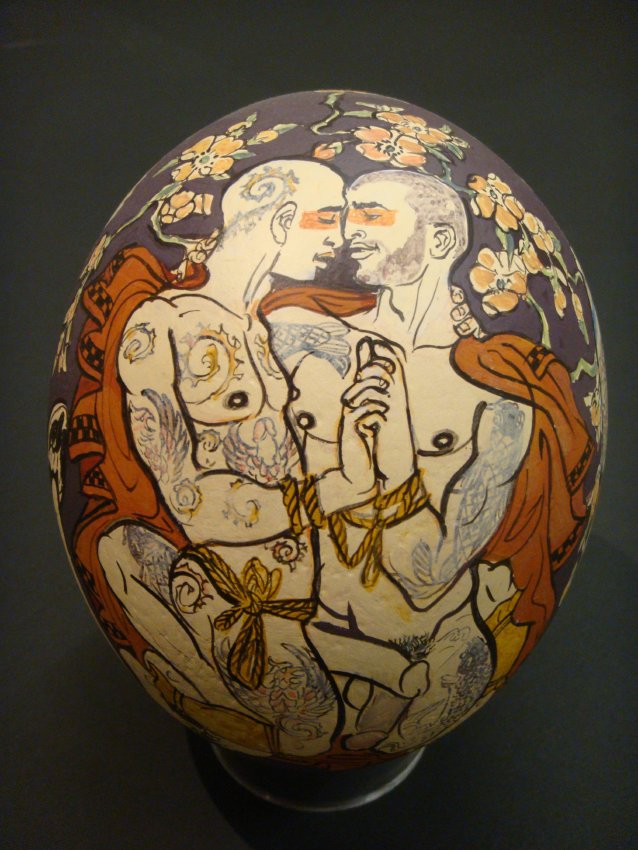
Credits
Images courtesy of Coyote Park and Leslie Lohman Museum.
